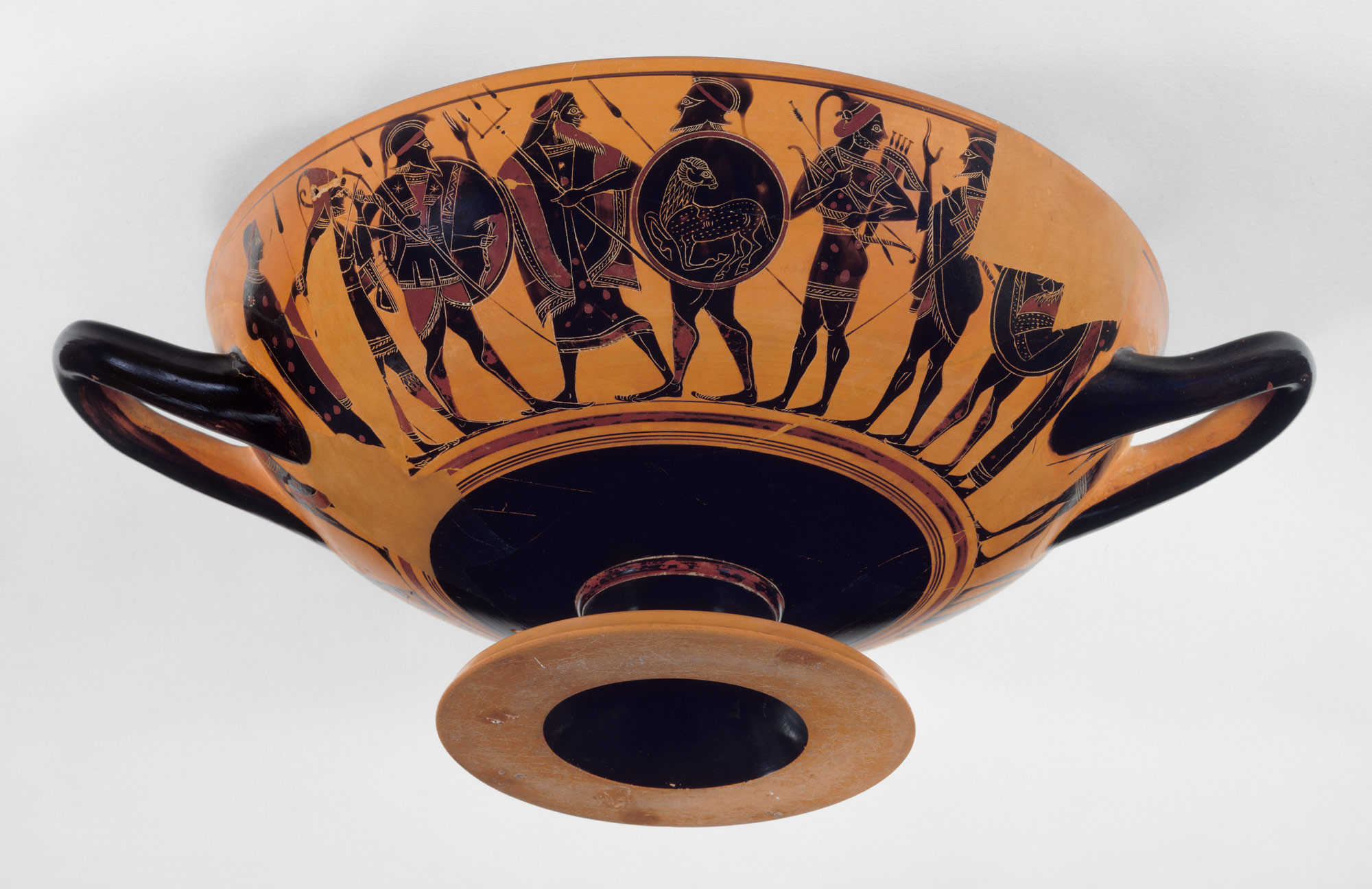I listened to the audiobook of ‘Iliad’ translated by Robert Fagles. It was a while ago back in college when I read Robert Fitzgerald’s translation. This time I wanted an audio version because I didn’t want to go through the agony of reading line by line, and instead to enjoy the epic poem in the way the Greeks might have done — in an oral form.
It was very satisfying. The dramatic ebb and flow of the words were a great enhancement to this already epic storyline. By listening and not reading, I was able to feel each scene lively and picture it more clearly as the reader emphasized the more important descriptions. I was also able to grasp the grander themes than the tiny entertaining details. If you haven’t done it yet, I highly recommend trying an audio version of Iliad.

Terracotta drinking cup. Depicts a scene in Iliad
A Grand Epic Poem
Don’t mistake this for a boring and lazy ancient text. This is a thrilling ride through Greece, Troy and Olympus, with a clear theme of glory, honor, rage, and fate. Major and minor characters each have a different take on these concepts, therefore their different behaviors and eventually their differing path of life and death: their fate. It is not only humans, but also the gods, that go through conflicts. And at the center of all drama is the half-god Achilles.
God-like Achilles
Achilles is clearly a distinct character in this epic poem. He is half-god, because he is a son of mortal Peleus and goddess Thetis. That gives him god-like characters, such as being invincible in battle, yet he is also destined to die just as his comrades are. Achilles has a plethora of emotions and thoughts, but it all connects to a single term: honor. He acts to heighten and defend his honor. Even death should be honorable for him, too. It sounds heroic, but it also means a more cunning person has rooms to move him.
And Many More Interesting Characters
Achilles is not the only interesting character in this epic poem. Hector of the flashing helmet is a proud warrior and a dutiful prince, but he falls short of fate as a mere mortal. Agamemnon, son of Atreus, is also distinguished with his exceptional greed. However, no one can undermine him because he has achieved what he desired and will continue to do so. He will not let anyone get on top of him. Odysseus shows glimpses of his cunning wit and shrewdness, which is yet to be exposed in its fullness. I will have to move on to ‘Odyssey’ to find more of that. Lastly, even gods, including the supreme god Zeus, fight to defend their own honor, as do the human beings. Gods have eternal life and plentiful resource. Therefore, honor is what they fight for.
Fantasy, not Historical Fiction
In the ‘Iliad,’ there are numerous appearances of Greek gods. Many preserve the typical characteristics that we know of from the Greek mythology. A humorous take on these gods and their relationship with human beings suggests that this epic poem was meant to be a fantasy fiction, without much historical basis. In addition, while Schliemann proved the historicity of the story by excavating Troy, the size of the actual battle is not likely to match what is described in the poem. Still, the epic poem is full of exciting blocks of story that have entertained numerous people. It surely will do for you, too.
Advertisements Share this:




